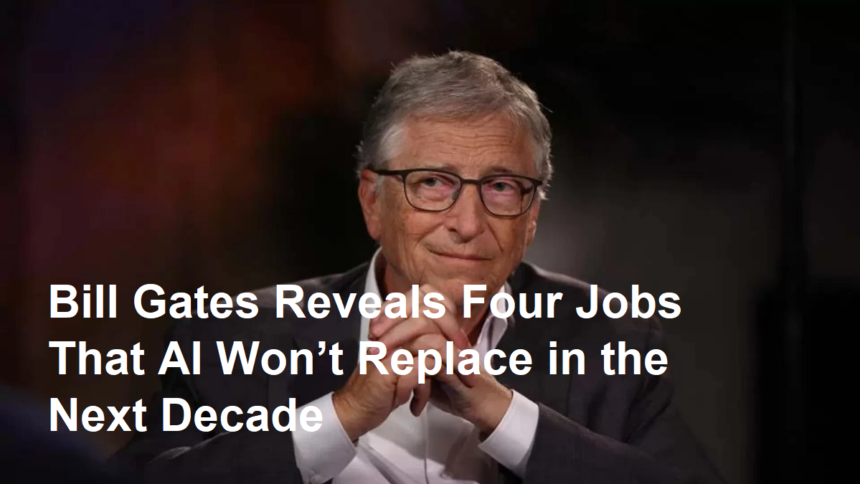Introduction
In the ever-evolving landscape of technology, artificial intelligence (AI) has taken center stage, rapidly transforming the way we live and work. While there’s no denying that AI can automate countless tasks, ushering in a new age of efficiency, not every job is destined to be replaced by machines. In fact, according to Bill Gates, co-founder of Microsoft and one of the world’s foremost technology visionaries, there are distinct roles that will remain firmly in human hands for at least the next decade. Curious about the reasons behind this? Let’s explore the four professions Gates believes will remain safe from AI’s grasp, and why human qualities make them indispensable.
The Uniqueness of Human Touch
Despite AI’s mind-boggling capacity to process data, recognize patterns, and even generate creative content, there are certain domains where the human touch—empathy, judgment, and nuanced communication—remains irreplaceable. Bill Gates, who has spent decades at the heart of technological innovation, emphasizes that the future of employment will hinge on such uniquely human attributes. He predicts that while AI will become an invaluable tool, it will also highlight the irreplaceable value of emotional intelligence and interpersonal skills—attributes that algorithms simply can’t replicate.
1. Healthcare and Caregiving Professionals
First on Gates’ list are healthcare workers, especially those involved in direct patient care. While AI can help diagnose illnesses or streamline administrative work, roles like doctors, nurses, therapists, and caregivers require empathetic communication and deep human connection. Think about a nurse comforting a patient after bad news, or a doctor empathizing with a family during a crisis. These moments transcend raw data—they require intuition, cultural sensitivity, and compassion, which are qualities still far beyond the reach of AI. Over the next ten years, the healthcare sector will still heavily depend on humans for trust, reassurance, and ethical judgment.
2. Teaching and Educational Roles
Education is another field where AI, despite its growing capabilities, will play more of a supporting role rather than being front and center. Teachers don’t just transmit knowledge—they inspire, mentor, and adapt lessons to each student’s needs. Bill Gates points out that the subtle cues picked up from a classroom—like a student’s anxiety before a test or the spark of curiosity—can’t be analyzed by even the most sophisticated algorithms. The emotional support and encouragement provided by dedicated educators are irreplaceable, and in the next decade, their guidance will still be crucial in nurturing human potential.
3. Creative Professionals: Artists, Writers, and Designers
The realms of art, literature, and design are all about originality and the human experience. While AI can assist in generating ideas or mimicking styles, truly resonant creative work comes from lived experience, emotional depth, and a personal worldview. Gates argues that these fields rely on subjective intuition and a nuanced understanding of what moves people—traits that no AI can genuinely possess. Whether it’s composing music, writing a novel, or conjuring groundbreaking visual art, the spark of human creativity can’t be duplicated by code. In the next ten years, human creators will continue to shape culture and meaning in ways machines cannot.
4. Leadership and Strategic Decision-Making
Leading organizations—whether in business, government, or non-profits—demands far more than processing information and optimizing for efficiency. True leadership is about vision, moral judgment, empathy in difficult times, and the ability to galvanize diverse teams toward a common goal. Gates believes that AI can provide analytics and recommendations, but it lacks the ethical compass, intuition, and motivational power that define great leaders. The pressures of crisis management, consensus-building, and handling ambiguity all require distinctly human presence and wisdom. These strategic and leadership roles, he predicts, will stay human-driven for at least the next decade.
The Value of Being Human
As we look forward to the next ten years, Bill Gates’ insights serve as both a warning and an inspiration. While it’s wise to prepare for a future shaped by smart machines, it’s equally important to hone and celebrate the qualities that make us uniquely human. Empathy, creativity, ethical judgment, and the ability to inspire or understand others—these are the bedrocks of the jobs that will not only survive AI but thrive alongside it. Embracing these skills may be our greatest asset in the age of automation.












